The U.S. economy and labor market remain as complex—and perhaps confusing—as ever. The swirl of news on any given day may lead companies and workers to vastly different interpretations of their current circumstances and future prospects.
Over the past year, generative AI captured the public’s imagination, but within the workforce its widespread integration and penetration are only beginning, creating speculation, excitement, and some apprehension about how its use will transform the way people work.
Amidst this environment, it is perhaps unsurprising that human resource (HR) leaders and learning and development (L&D) professionals are focusing intently on bellwether workforce topics—employee experience (EX), skills-based approaches to hiring and development, HR technology systems, AI-enabled innovation, and the interactions across these forces.
CompTIA’s Workforce and Learning Trends Report delves into the many facets of these changes as business leaders and workers navigate the year ahead. The report incorporates qualitative insights from subject matter experts along with data from a quantitative survey of nearly 1,200 HR and L&D professionals.
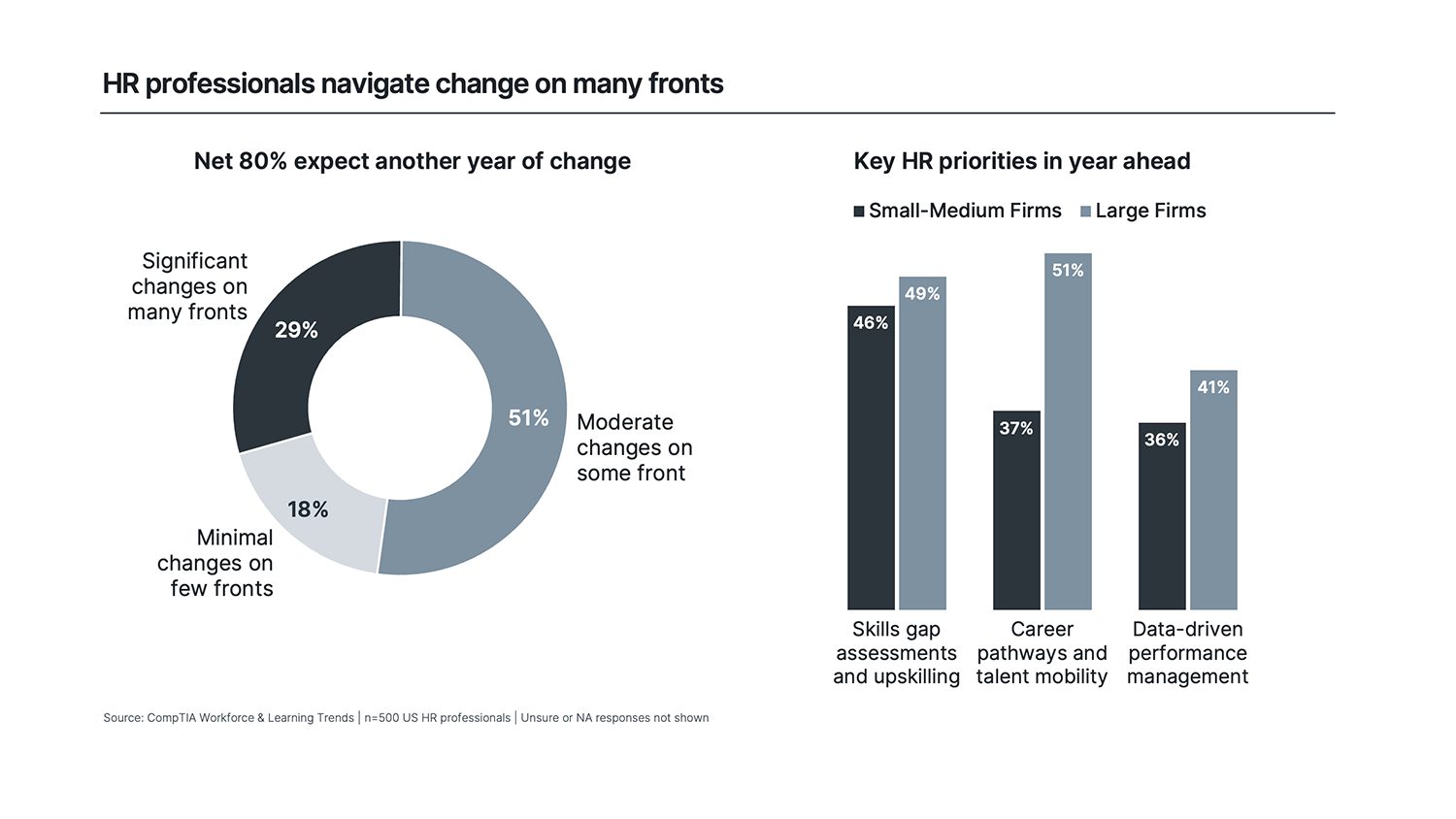
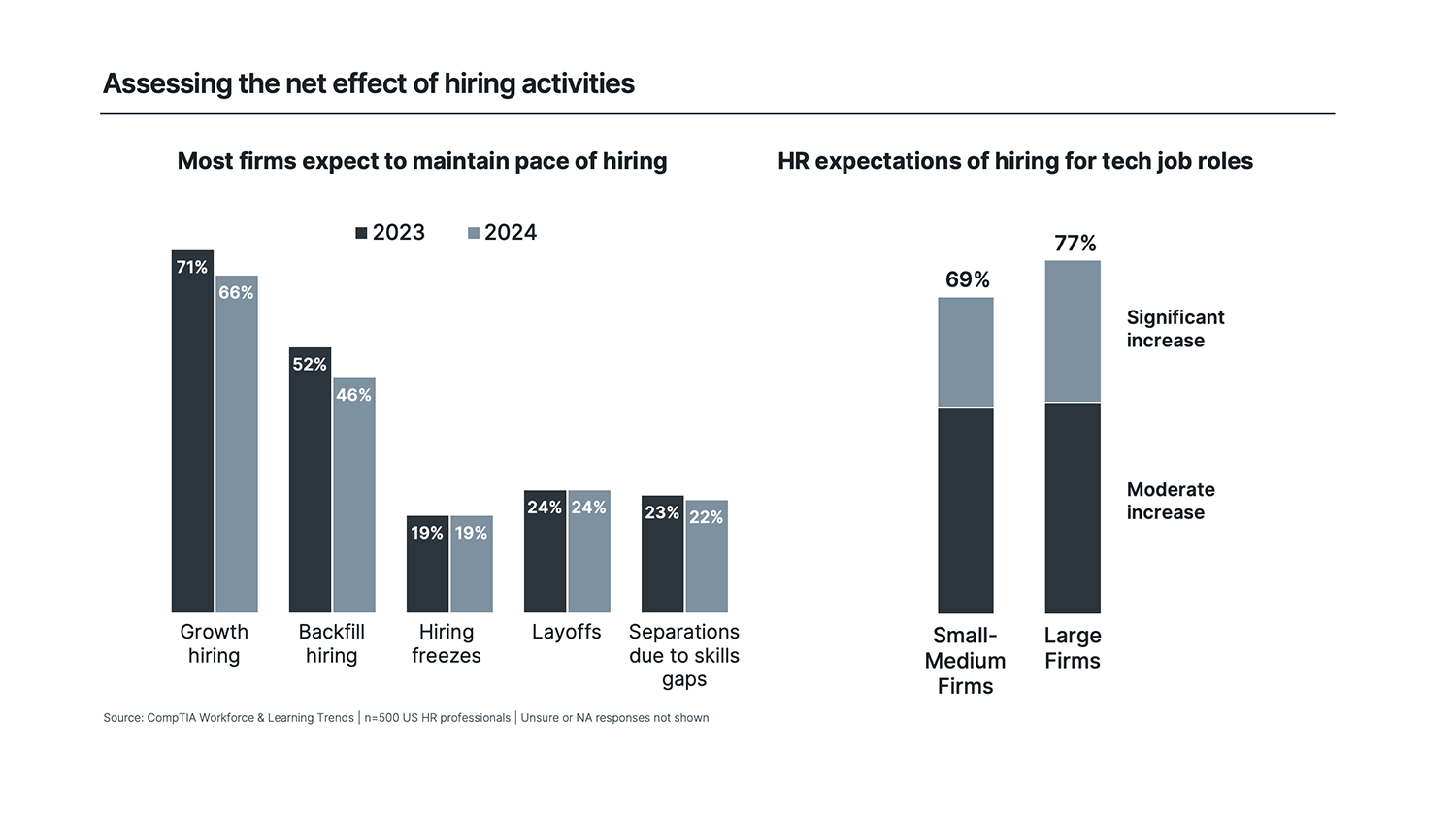
Skills-based hiring and related skills-first approaches continue to make waves in workforce discussions. A confluence of recent factors has shifted how HR professionals conceptualize skills-based hiring and a “skills-first” approach.
CompTIA’s Workforce and Learning Trends survey found about half of HR professionals agree a skills-based approach to hiring is a “new and compelling strategy,” rather than simply a repackaging of an older idea. Granted, employers have always sought skilled workers able to get the job done, relying on various direct or inferred measures of skill and competency, but HR professionals now appear to view skills through a fresh lens.
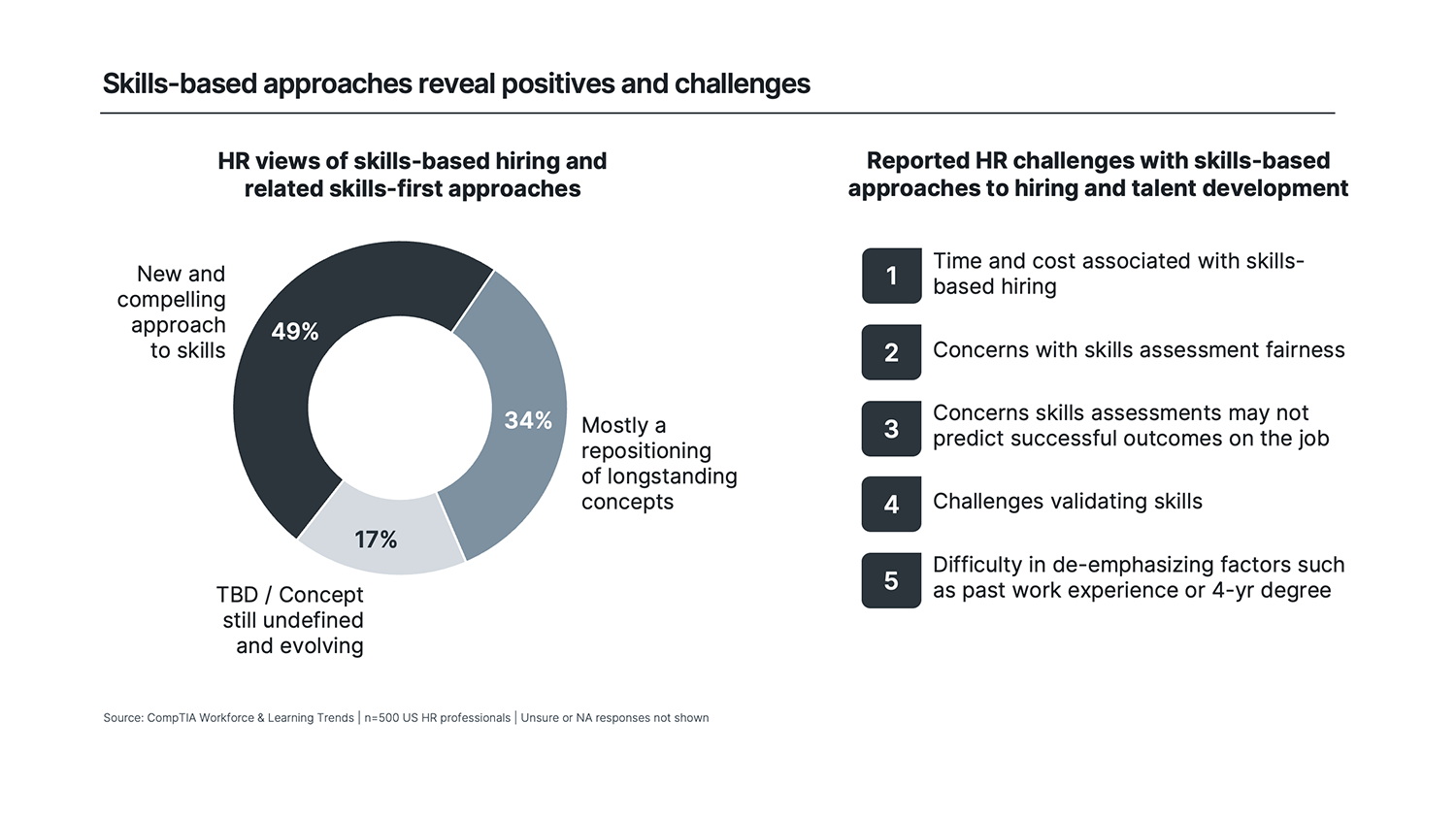
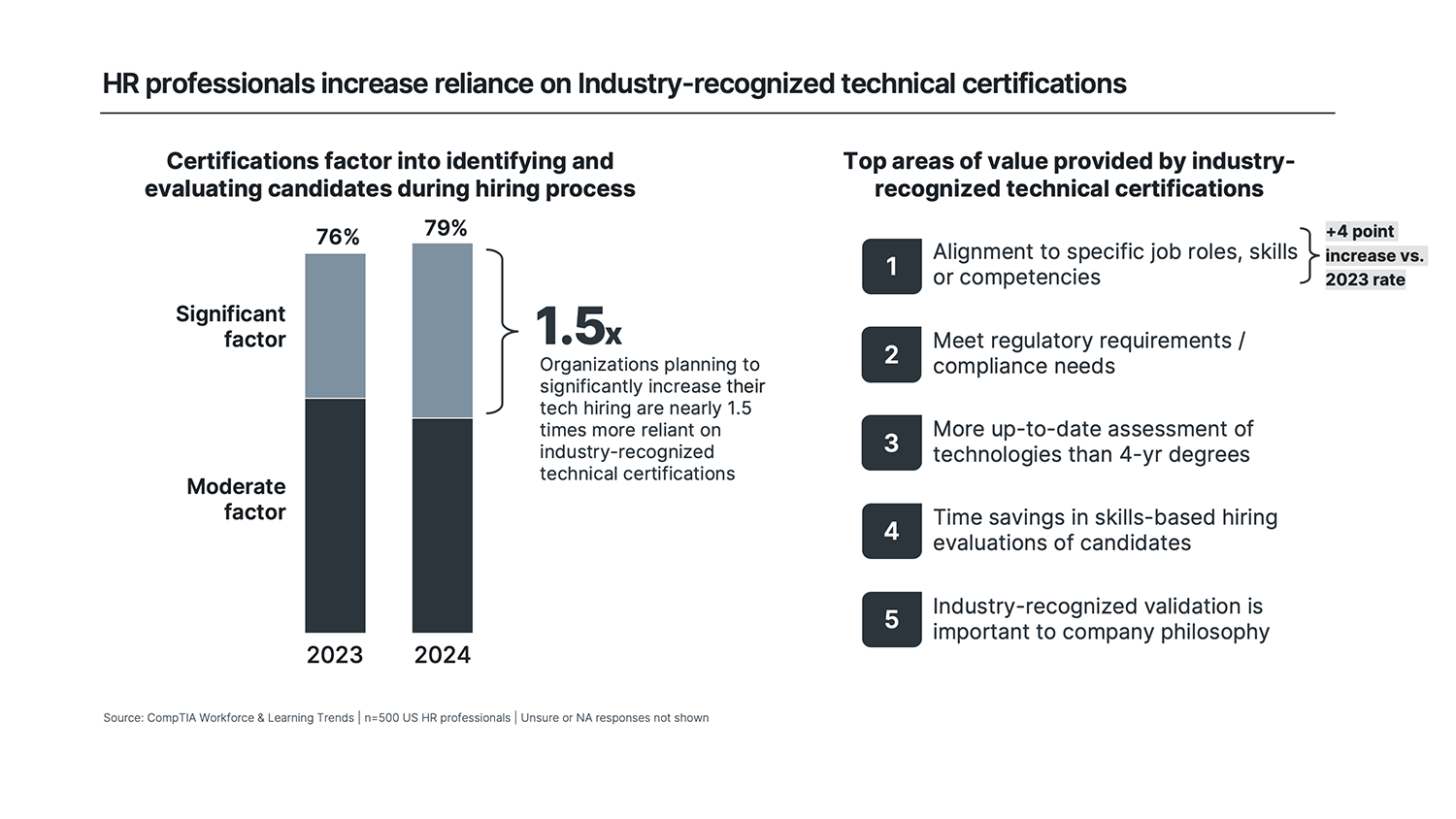
Digital fluency has become an especially sought-after attribute within today’s tech environment, in which companies increasingly rely on proprietary software and third-party tools.
In relatively short order, the concept has gained tremendous currency. In this year’s Workforce and Learning Trends survey, almost 70% of respondents indicated digital fluency continues to increase as an important capability within their organizations (with the remaining segment indicating the already high level of importance remains at its current level).
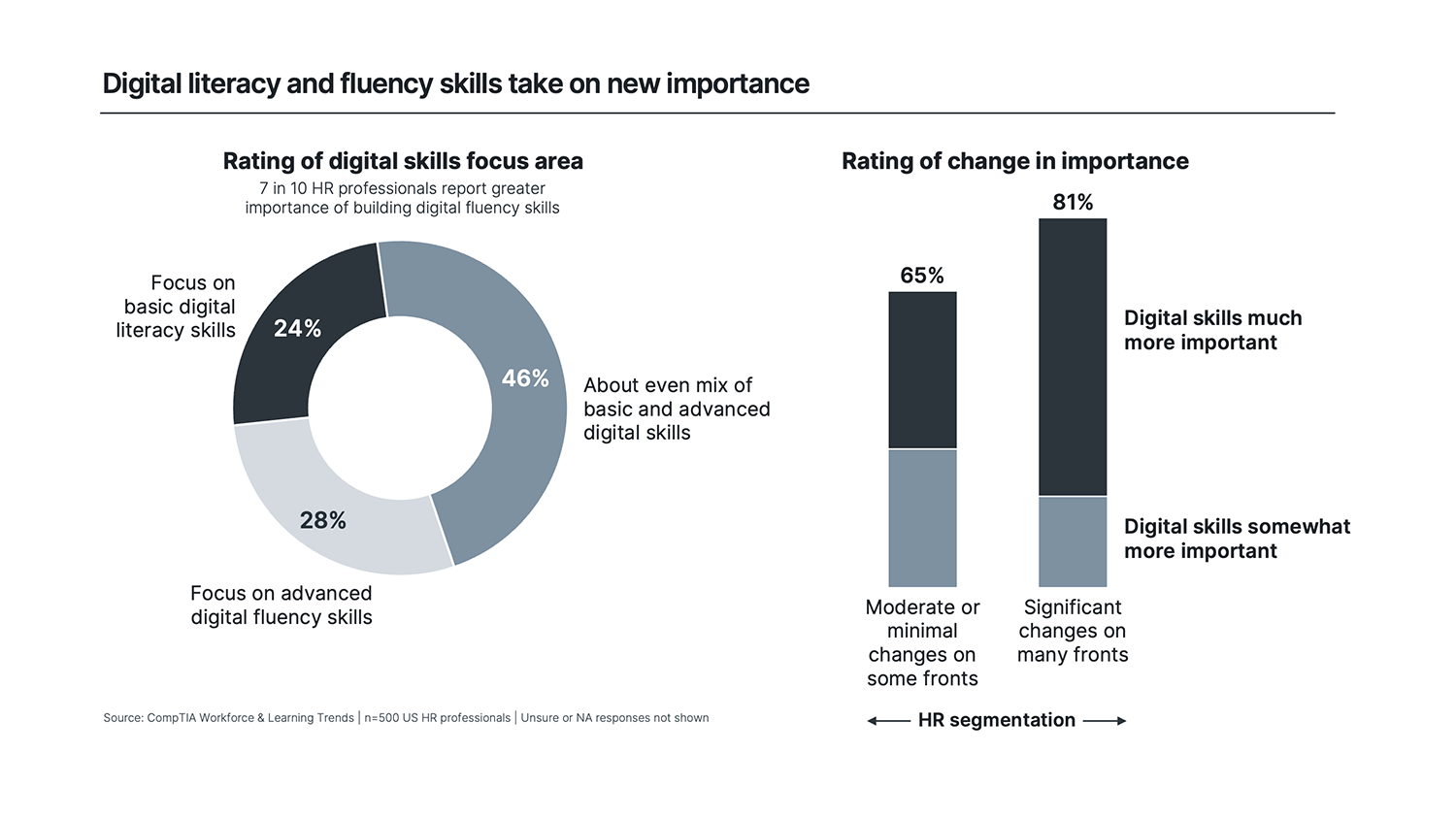
Given the complex patchwork of tech in use, most employers understand prospective employees won’t have hands-on experience with proprietary tools exclusive to their company. Instead, they prioritize job candidates who can get up to speed on these new tools quickly. A digitally fluent employee can do just that, whether the software is something they have yet to encounter or is something that has yet to be invented.
Significant segments of the economy, especially many small- or medium-sized businesses, continue to modernize and digitally transform. The path for many of the workers within these organizations may begin with foundational digital literacy skills and then progress to more advanced digital fluency skills over time.
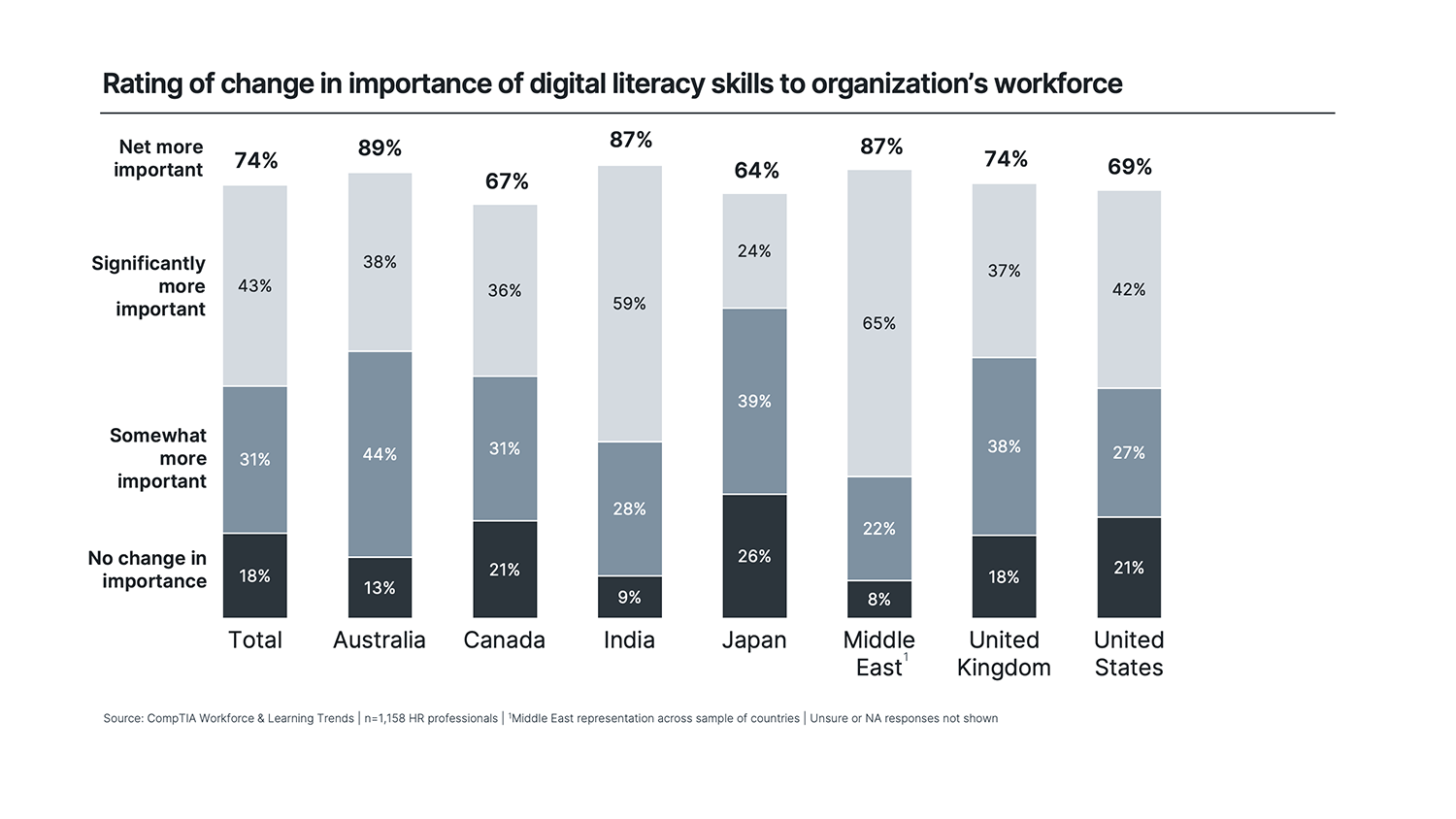
It is not an exaggeration to say the release of OpenAI’s ChatGPT took the country by storm. In shockingly short order the niche discussions of artificial intelligence and machine learning turned to sweeping proclamations of a new AI era transforming every facet of the workplace and economy. Unfortunately, this was also accompanied by a propensity toward sensationalist hype, including claims that AI rivals the discovery of fire or electricity in terms of its profound potential impact.
In the not-too-distant past, the widespread adoption of the internet was also once considered a revolutionary technology. Its advent, adoption, and integration into every workplace created, transformed, and—yes, even—destroyed many bedrocks and conventions of work life. Smartphones, mobile apps, cloud computing, big data, the internet of things (IoT), blockchain, 5G, cryptocurrency, and many other technologies have all been described in sweeping and at times apocalyptic terms. Some greatly exceeded expectations while others fell well short.
CompTIA research explores these attitudes and finds many workplaces growing more open to and excited by the innovations promised by AI.
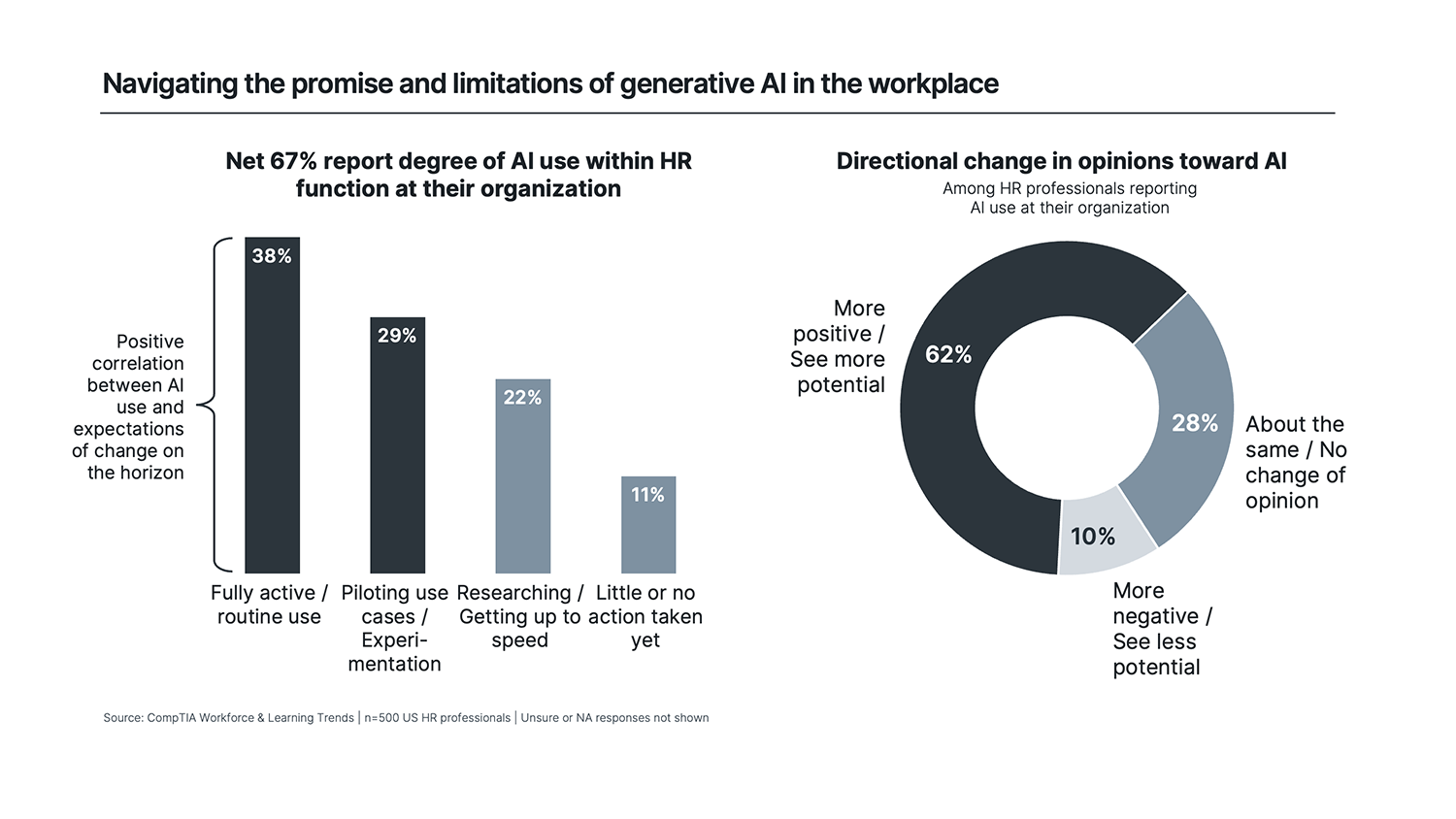
Read more about IT Workforce.
Tags : IT Workforce